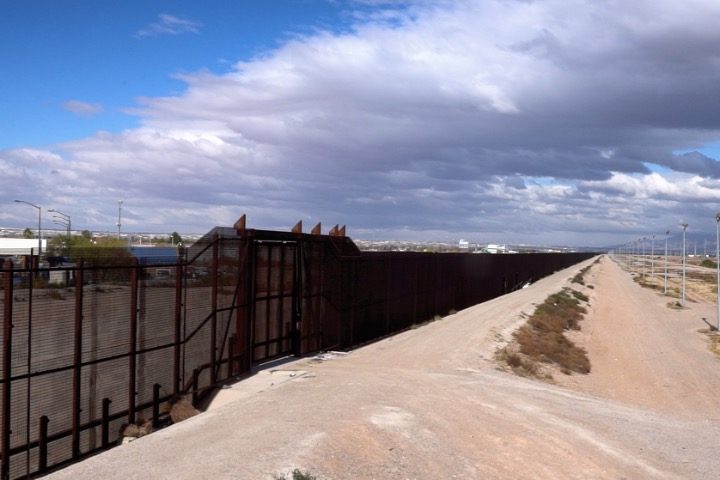
Speaking at a news conference on Sunday, El Paso, Texas, Mayor Oscar Leeser declared a state of emergency beginning May 1, to prepare for an expected influx of illegal aliens crossing the border as the Title 42 public health order is scheduled to expire May 11.
President Trump invoked Title 42 in March 2020 to prevent the spread of Covid-19, giving U.S. border agents the authority to immediately expel and prevent illegal aliens encountered along the border from seeking asylum. Spectrum News shared that “Title 42 has been used more than 2.5 million times to expel migrants since March 2020, although that number includes people who repeatedly attempted to cross the border.”
According to the El Paso Times, there are “unconfirmed estimates of up to 35,000 asylum seekers waiting in Juárez, Mexico, to cross the U.S. border once Title 42 expires.” The city of El Paso already has hundreds of illegal immigrants camped out and sleeping along city streets, overburdening city resources.
“May 1st I am declaring a state of emergency in our community and the reason why we’re declaring a state of emergency is to make sure that we can stand up and be prepared for … May 11, May 12 to have public shelter and public housing and this is really temporary,” Leeser said, according to Border Report.
The emergency declaration allows the city to open temporary shelters with the use of federal funds. They anticipate thousands of illegal aliens crossing into the United States from Mexico every day as early as May 11. The declaration will last for seven days, and then will go before the city council to be ratified for a month, according to the mayor.
“We’re starting to pick up some momentum as asylum-seekers are around the streets of downtown El Paso and other areas of our community, and we need to make sure that we continue to protect not only the asylum-seekers but also our community,” Leeser said.
Mayor Leeser is trying to be proactive, recognizing the potential urgency of the situation to not only protect city residents but hopefully avoid a humanitarian crisis. The city is, according to the Times, “working with the American Red Cross, churches and charities to provide shelter,” as well as “enforcing no-camping laws.” El Paso City Police “will not enforce immigration law, which is a federal purview.”
In January, the Department of Homeland Security (DHS) announced new border enforcement measures in preparation for the Title 42 order being lifted. The measures included establishing new parole processes for Cubans, Haitians, and Nicaraguans, and requiring that immigrants, with some exceptions, apply for asylum in a third country through which they cross before reaching the U.S.-Mexico border. Also, the DHS measures provide a CBP One app for noncitizens to “schedule appointments to present themselves at ports of entry, facilitating safe and orderly arrivals.”
According to the Washington Examiner, the Biden administration recently announced plans to create immigration processing centers throughout Latin America to help curb the flood of immigrants coming to the U.S. and in anticipation of the sunsetting of Title 42. “These centers will take a hugely important step to prevent people from making the dangerous journey to the border by providing a much safer legal option to migrate that they can pursue in and from their own countries,” Secretary of State Antony Blinken said. “It’s a new and innovative approach that does right by people who want to migrate and that enhances security and stability in the region.”
An April 27 State Department briefing on “new regional migration management measures” shared:
The end of Title 42 does not mean, however, that the border is open. When Title 42 lifts, the government will return to Title 8 processing, a longstanding immigration enforcement authority that administrations from both parties have used historically to process individuals encountered at the border.
Title 8 processing includes “stiffer consequences for unlawful migration, which include at least a five-year ban on re-entry, as well as potential criminal prosecutions for repeated attempts to cross unlawfully.”
As Mayor Leeser prepares his city for the expected influx of illegal aliens, it is still unknown how well prepared the U.S. Border Patrol will be for the thousands that are waiting to cross the border. The Biden administration has already proven its ineffectiveness at protecting our borders, and that is not likely to change, even with the new policies and measures in place.
To learn more about illegal immigration and what can be done about it, click here.




